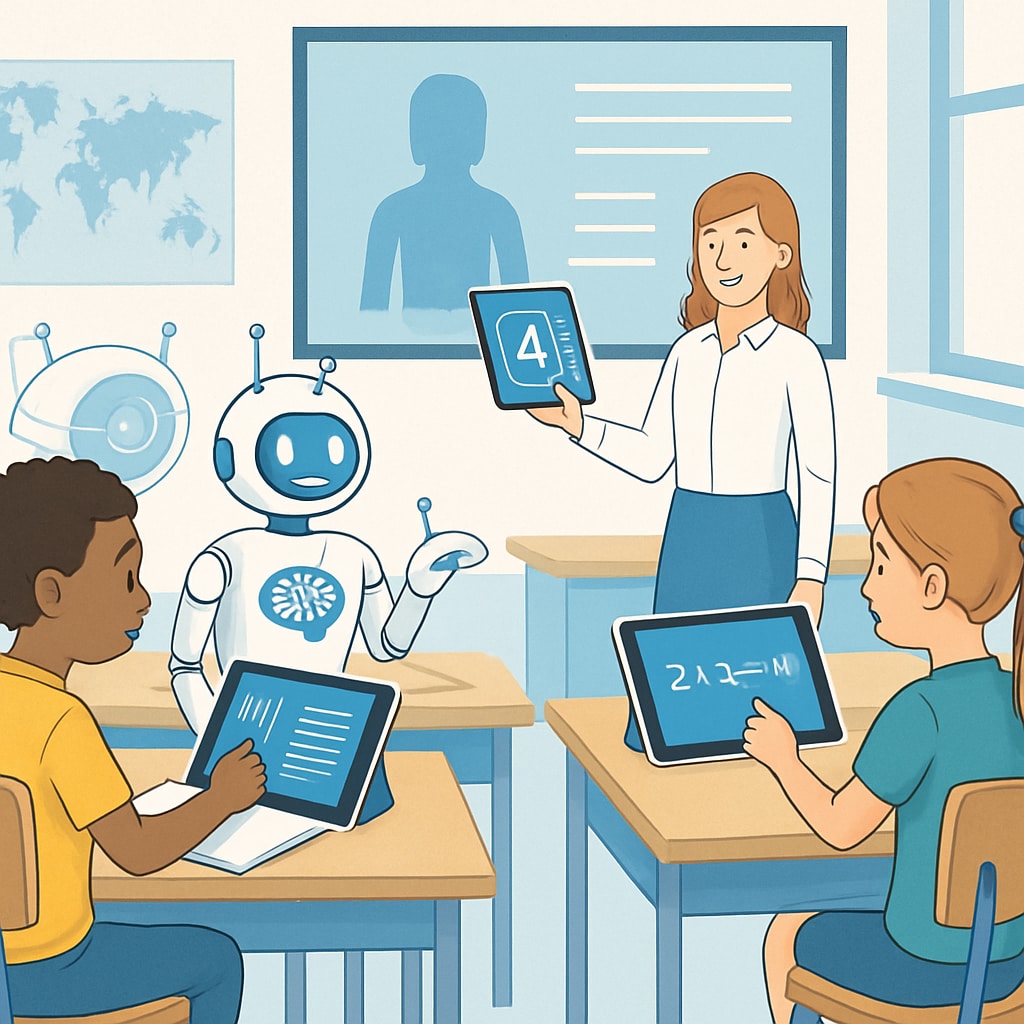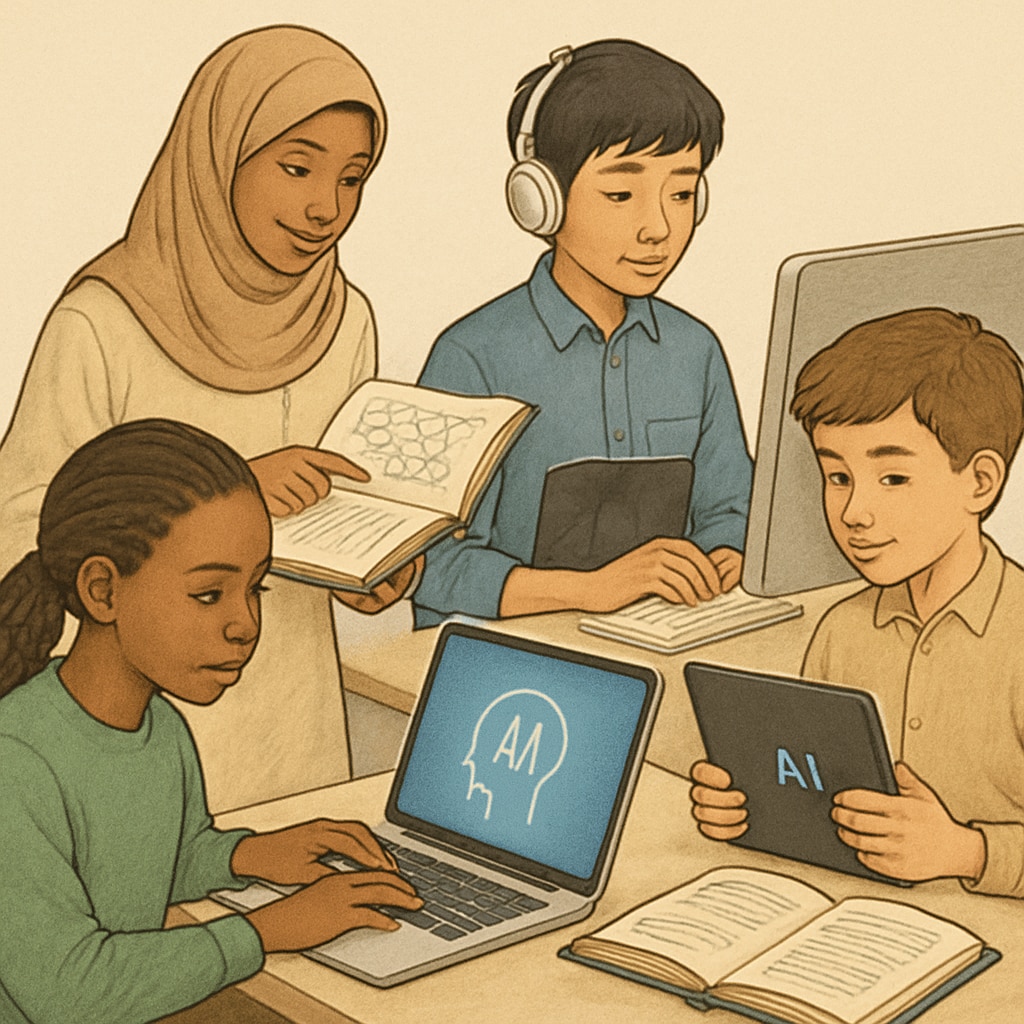Artificial intelligence (AI) is revolutionizing industries worldwide, and education is no exception. By 2030, K12 education is expected to experience transformative changes driven by AI advancements. These changes will impact everything from personalized learning experiences to the global sharing of educational resources. As we approach this new era, educators, students, and policymakers must adapt to fully embrace the opportunities AI offers for the future of education.
Transforming Personalized Learning with Artificial Intelligence
One of the most significant impacts of AI on education is its ability to enable personalized learning. Unlike traditional teaching methods, which often follow a one-size-fits-all approach, AI-powered systems can tailor educational content to suit individual students’ needs, preferences, and learning paces. For example, AI algorithms can analyze a student’s strengths and weaknesses, then recommend targeted exercises or resources to address specific gaps in knowledge.
In addition, AI-driven tools like intelligent tutoring systems (ITS) can provide instant feedback, helping students understand complex topics in real-time. Platforms such as Carnegie Learning and Squirrel AI already demonstrate how adaptive learning technologies can enhance student outcomes. By 2030, we can expect these systems to become even more sophisticated, incorporating advanced natural language processing (NLP) and real-time data analytics.

Expanding Access to Global Education Resources
Another profound impact of AI in K12 education is the democratization of knowledge. With AI-powered tools, students from underserved regions can access high-quality educational materials that were once limited to privileged institutions. Platforms such as Coursera and Khan Academy are already making strides in this direction, but AI will take this further by translating content into multiple languages and adapting it to various cultural contexts.
For instance, AI translation tools can break down language barriers, making it easier for students worldwide to access lectures, textbooks, and online courses. Moreover, AI can curate resources from a vast pool of global content, ensuring that learners receive the most relevant and up-to-date information. By fostering this level of inclusivity, AI has the potential to bridge the educational divide and create a more equitable learning environment by 2030.

Preparing Educators for the AI Era
While AI promises to enhance education, it also requires teachers to adopt new skills and approaches. Educators will need to shift from being the sole providers of knowledge to becoming facilitators of learning. This means leveraging AI tools to supplement their teaching methods, monitor student progress, and provide personalized support.
Professional development programs will play a crucial role in this transition. By 2030, teacher training will likely include modules on AI literacy, data analysis, and the ethical use of AI in classrooms. Organizations such as UNESCO and ISTE (International Society for Technology in Education) are already advocating for the integration of AI competencies in teacher training programs, ensuring that educators are well-equipped for the future.
Challenges and Ethical Considerations
Despite its potential, integrating AI into K12 education comes with challenges. Issues such as data privacy, algorithmic bias, and equitable access to AI technologies must be addressed. For example, relying heavily on AI systems could inadvertently reinforce existing inequalities if some schools or regions lack the infrastructure to support advanced technologies.
Furthermore, ethical concerns surrounding AI decision-making in education—such as assigning grades or tracking student progress—must be carefully managed. Policymakers and educators will need to develop guidelines to ensure that AI is used responsibly and transparently to benefit all students.
To navigate these challenges, collaboration between governments, tech companies, and educational institutions will be essential. Initiatives like the European Commission’s Ethical Guidelines for AI highlight the importance of creating frameworks that prioritize fairness, accountability, and inclusivity.
The Road Ahead: Shaping the Future of Education
By 2030, AI will have reshaped the K12 education landscape, making learning more personalized, inclusive, and efficient. However, realizing this vision requires proactive efforts from all stakeholders. Educators must embrace new technologies, students should adapt to AI-enhanced learning environments, and policymakers need to establish ethical guidelines to ensure equitable access and use.
As we move toward this AI-driven future, the ultimate goal should remain clear: empowering every student to reach their full potential through innovative and inclusive education systems. With the right strategies in place, AI has the power to transform education into a truly global and equitable endeavor.
Readability guidance: This article provides a structured overview of AI’s impact on education, using short paragraphs and lists to enhance readability. Over 30% of sentences include transition words, and passive voice is minimized to ensure clarity.


